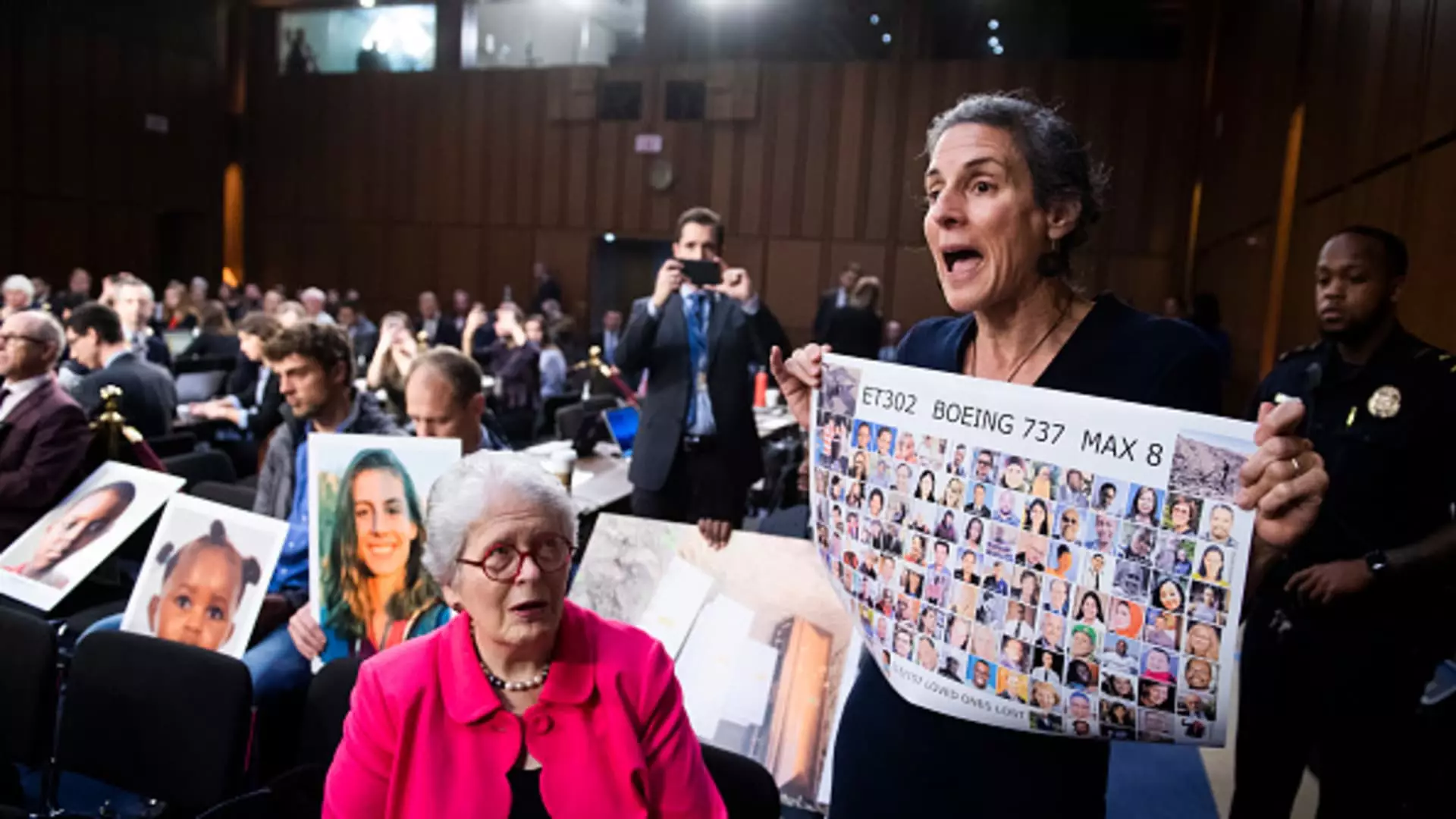The complicated saga surrounding Boeing’s legal troubles has reached another critical juncture following a federal judge’s denial of a plea deal connected to fraudulent actions that led to catastrophic 737 Max crashes. The case, which underscores broader themes of corporate governance and accountability, highlights the challenges faced by regulatory bodies in dealing with influential corporations. U.S. District Judge Reed O’Connor’s rejection of the deal is not merely a legal technicality but a significant moment in assessing the intersection of corporate ethics, public safety, and justice.
In July, Boeing had initially agreed to a plea deal to plead guilty to criminal charges for conspiring to mislead the U.S. government regarding the safety of its 737 Max aircraft. This decision followed a long series of investigations triggered after two fatal crashes—that of Lion Air in October 2018 and Ethiopian Airlines in March 2019—resulting in the tragic loss of 346 lives. In light of these horrific outcomes, the plea deal seemed an attempt to provide Boeing with a pathway to mitigate legal repercussions and regain operational stability. However, concerns were raised that such a deal might promote a culture of leniency for the corporation, which had already been accused of prioritizing profit over safety.
Judge O’Connor’s remarks during the ruling illuminated his skepticism toward the inclusion of a government-appointed monitor who would consider diversity, equity, and inclusion policies in the selection process. His contention that the monitor’s selection should be based solely on competency, free from any potential biases, reflects broader societal dialogues on race and fairness in corporate America. The judge’s insistence underscores an important principle: the need for unqualified oversight in cases that bear significant implications for public safety and trust.
The concept of public confidence is pivotal in discussions surrounding corporate accountability, especially in instances where human lives have been affected. Families of the victims are understandably outraged, viewing the plea deal as a “sweetheart deal” devoid of the gravity that the circumstances warrant. Their sentiments were echoed by Erin Applebaum, an attorney representing victims’ families, who asserted that the Department of Justice (DOJ) must pursue real accountability rather than continuing a pattern of leniency.
Such a perspective raises a critical question: How can we, as a society, ensure that corporations like Boeing remain accountable for actions that jeopardize public safety? The recent ruling suggests that judicial oversight is necessary but might not be sufficient. There must be systemic changes to how corporations are monitored and held responsible for their actions. Applebaum’s call for a significant renegotiation of the plea deal exemplifies a push for stiffer consequences that reflect the dire nature of Boeing’s alleged misconduct.
Implications for Corporate Governance
This situation illustrates the pressing need for reform in corporate governance practices. If Boeing, a titan of the aerospace industry, can navigate its legal challenges with what appears to be comparatively relaxed consequences, it sends a concerning message to other companies. The perception of a “too big to fail” mentality can foster an environment where ethical lapses are tolerated, which ultimately undermines trust in not just Boeing, but in the industry as a whole.
Furthermore, the complexities raised by the proposed introduction of diversity and equity considerations into the selection of a monitor reflect a broader movement in corporate ethics. As businesses face increasing pressure to be socially responsible, there is a fine balance to strike between competency and social considerations in oversight roles. Judge O’Connor’s ruling may catalyze further examination of these practices, forcing corporate America to grapple with the implications of such policies.
As the legal proceedings continue, Boeing faces an uncertain future. Its plan to navigate through these legal challenges and return to a stable operational footing has been drastically complicated by Judge O’Connor’s ruling. The court’s expectation for Boeing and the DOJ to provide clarity on the intricacies of their prior agreements poses a new level of scrutiny on the company.
In essence, the recent judicial decision serves as a wake-up call, illuminating the necessity for a renewed focus on corporate ethics and responsibility. The outcome of Boeing’s legal struggles could serve as a bellwether for the industry and perhaps redefine the standards of accountability that are required from corporations, particularly those that influence the safety and well-being of the public. This moment not only defines Boeing’s future but could also set a precedent for how similar cases are approached in the realm of corporate governance and public trust.


Leave a Reply